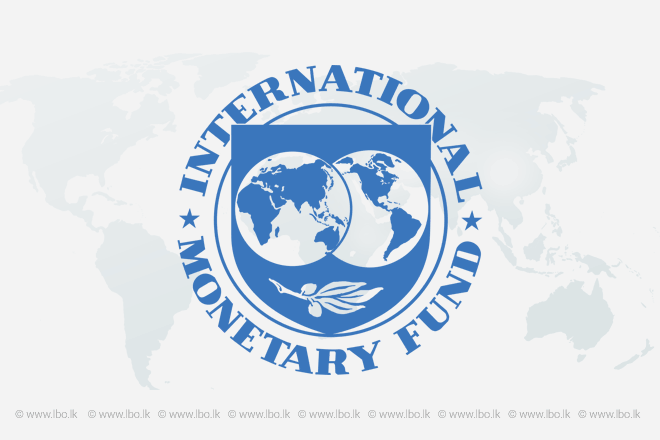buy nolvadex online https://qpharmacorp.com/wp-content/uploads/2023/08/png/nolvadex.html no prescription pharmacy
The loan program will need approval by the IMF’s executive board, which is due to consider it in early June. Once approved it is “expected to catalyze an additional 650 million dollars in other multilateral and bilateral loans, bringing total support to about 2.2 billion dollars, over and above existing financing arrangements,” the IMF said. The full statement by Todd Schneider, IMF mission chief to Sri Lanka, is below: “I am pleased to announce that, in support of the government’s economic reform agenda, the Sri Lankan authorities and the IMF have reached a staff-level agreement on a 36-month Extended Fund Facility (EFF) for 185 percent of Sri Lanka’s quota in the IMF (about SDR 1.1 billion or US$1.5 billion). This agreement will be subject to completion of prior actions and approval by the IMF’s Executive Board, which is expected to consider Sri Lanka’s request in early June. Formal approval of the EFF is expected to catalyze an additional US$650 million in other multilateral and bilateral loans, bringing total support to about $2.2 billion (over and above existing financing arrangements). “The EFF supports the authorities’ ambitious economic reform agenda for the next three years. The government’s economic program aims at fundamental changes to tax policy and administration to reverse a two-decade decline in tax revenues and put public finances on a sustainable medium-term footing.
online pharmacy buy diflucan with best prices today in the USA
Stronger revenue performance will enable smaller fiscal deficits and lower borrowing, reduce the overhang of public debt, and ease pressure on the balance of payments—while at the same time preserving room for the government’s key social and development spending objectives. State owned enterprise (SOE) reform will reduce fiscal risk, increase transparency and facilitate commercially viable operations. The macroeconomic stability and renewed market confidence from this fundamental re-set of policies will reduce vulnerabilities, boost growth, and foster sustainable job creation. “To this end, the authorities’ program supported by the IMF focuses on a comprehensive set of reforms to Sri Lanka’s tax system—eliminating exemptions, holidays, and special rates to broaden the tax base and create a tax system that is simple, efficient, and more equitable. The government will seek to raise the tax-to-GDP ratio to near 15 percent by 2020 by implementation of a new Inland Revenue Act, reform of the VAT and the customs code. These efforts on tax policy will be complemented by capacity building and reform in revenue administration—making full use of automated systems and information technology to bolster tax collection while also clamping down on corruption and discretionary tax treatment. Together with more efficient management of government expenditure, the program will support a steady reduction of the overall fiscal deficit to 3.5 percent of GDP by 2020—equivalent to a shift from primary (excluding interest costs) fiscal deficits to primary surpluses that will underpin a much-needed reduction of public debt. “State enterprise reform will play a key role in both limiting future risk to public finances and enhancing the role of market forces in the economy. The government is committed to dealing quickly with the legacy of Sri Lankan Airlines, which continues to represent a drain on public finances after years of mismanagement.
online pharmacy buy abilify with best prices today in the USA
Going forward, key state firms—and the government’s financial relations with such firms—will be governed transparently by annually published statements of corporate intent. The government will also ensure that the pricing of electricity and fuels is guided by the market, with subsidies needed to protect the poor and vulnerable being better targeted and clearly reflected on the government’s budget.
buy albenza online https://www.indcheminternational.com/wp-content/uploads/2022/08/png/albenza.html no prescription pharmacy
This will avoid the accumulation of un-funded subsidy bills and ensure SOE operations are conducted on a commercially viable basis. “Important structural reforms will also support growth and competitiveness objectives. The government plans to review and reform the external tariff structure to reduce effective rates of protection while simultaneously pursuing new trade agreements. The central bank will shift toward a flexible inflation targeting regime while also undertaking measures to help deepen foreign exchange markets and a support a durable transition to a flexible exchange rate regime.
buy doxycycline online https://qpharmacorp.com/wp-content/uploads/2023/08/png/doxycycline.html no prescription pharmacy
Strengthening financial sector supervision and increasing the role of private credit and financial intermediation in the economy will remain important objectives. “With the implementation of these policies, Sri Lanka will support growth and build resilience to future economic shocks.
online pharmacy buy spiriva inhaler with best prices today in the USA
Overall, the EFF will help the government achieve ‘lift off’ of the economy and fully tap Sri Lanka’s significant economic potential.”


Hopefully this will be the catalyst to build resilience for our economy and national plan in place to continue when the next government get into power. Poor people of this country should not put into trouble with economic mismanagement and favoritism. Sri Lanka blessed with extremely talented human capital. Like what government doing time to tighten the belt.
Didn’t the government categorically deny that it’s in talk with IMF for a loan and that tax increases and privatization are part of the deal? It’s evident that there is a government within our government who takes all decisions and others are just public faces.